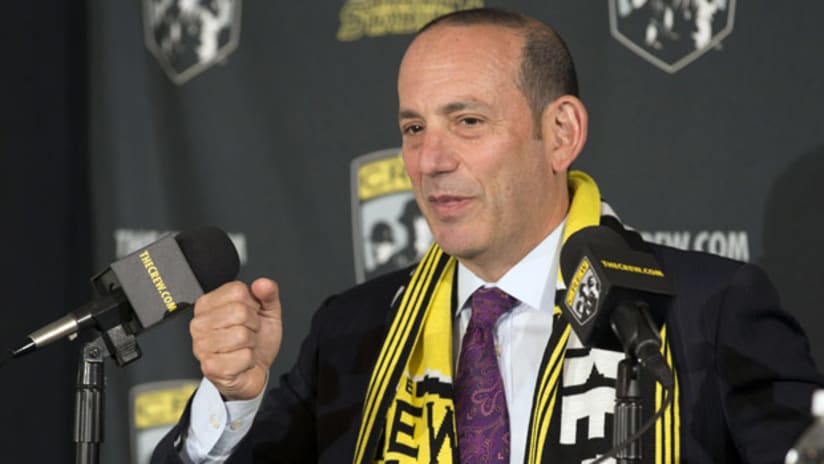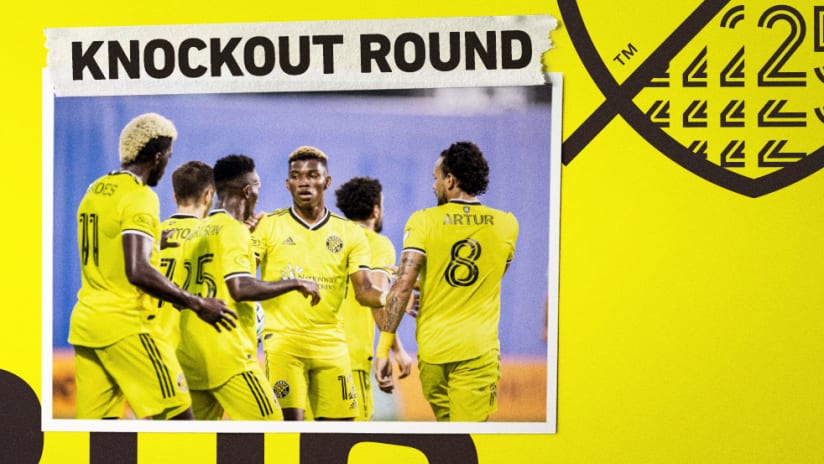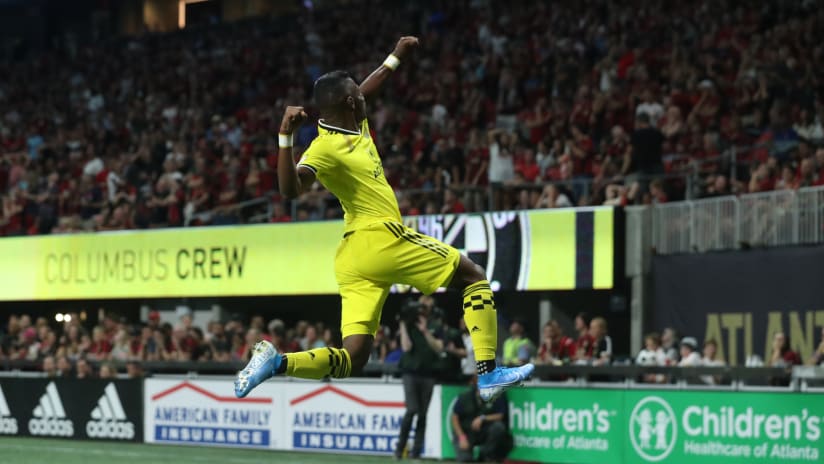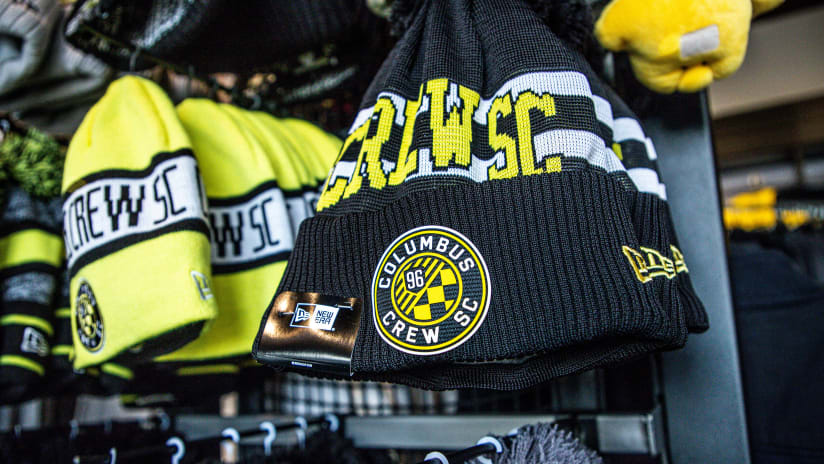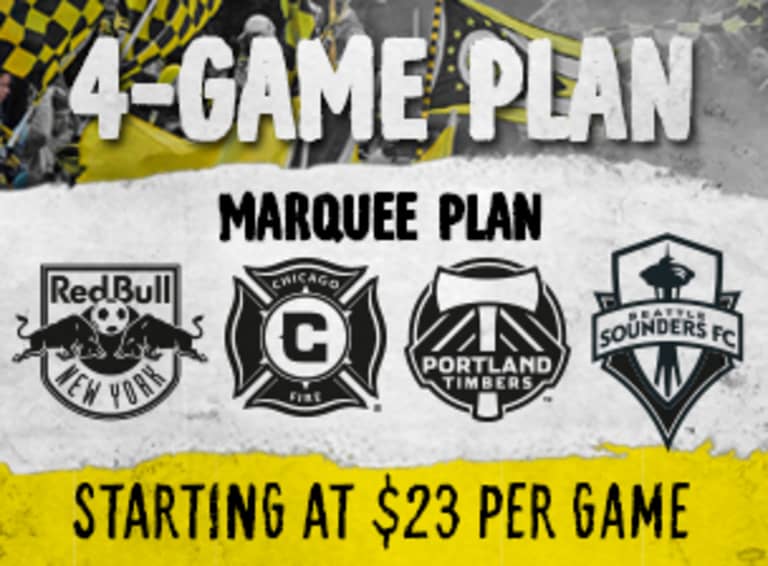
Crew 4 Game Plans
Two massive plans, each offering you some of the best games and promotions of the season.
LEARN MORE
During his short trip to Columbus to announce the return of the MLS Business Summit in the Arch City, Major League Soccer Commissioner Don Garber sat down with TheCrew.com's Cody Sharrett to talk about a number of things on the local and League levels.
Cody Sharrett (CS):Welcome to Columbus once again, Commissioner Garber.
Don Garber (DG): Since this our first introduction, here's the good part: I'm sitting here doing an interview, watching [Federico] Higuaín take dozens and dozens of free kicks and trying to get that scoring thing down. What could be better than sitting out here on the deck?
CS: It's a beautiful day, welcome to Ohio.
DG: It's a beautiful day, watching the team practice and hopefully we start to see 'Fed' get his scoring touch back, right?
CS:Yeah, it'll be a good match this weekend to see Pipa and the Crew against Thierry Henry and the Red Bulls on Saturday afternoon.
DG: It's a big one this weekend, right?
CS:Yep, Saturday on NBC Sports.
DG: Nice, that'll be a big one. I'll be looking forward to it.
CS: Let's get to why you're here. What brings you to Columbus?
DG: I'm here to announce the MLS Business Summit coming back to Columbus. We were here last year. It was a great event, the first time we'd had it in five or six years. The event is all of our clubs, all of our business managers, a lot of our sponsors and many of our broadcasters all coming into Columbus to talk about how we can grow the commercial value of the game. It worked so well last year, we decided we couldn't think of a better place to have it than Columbus.
CS: What is it about Columbus that made the city the right choice to host the event once again in 2013?
DG: It's very centrally located. The market has a lot of appeal to our League. All of our staff know about the history of Lamar Hunt and the launch of the team and the first [soccer-specific] stadium being built set the stage for the 14 stadiums that were built subsequently after that. It just makes perfect sense. And by the way, the Columbus partnership, Mayor Coleman and Mark McCullers did such a great job hosting everybody last time. It just made perfect sense to come back.
CS: This is the first time the event has taken place in back-to-back years. How important is the Business Summit to the growth of the League?
DG: That's a good question. The League has got to build its business metrics. The Columbus Crew is trying to do that with Goal 10k and getting a naming rights deal on the stadium. Every team has got to get focused on growing their revenues and building the scale to our business: sponsorship, ticket sales, broadcasting, building an audience, digital media and marketing, fan development and grassroots marketing. All of those kinds of things that are part of growing the business side of the game. The best way to do that is to share the best practices and get everybody together and see if something is working in Seattle, how could it work in Columbus? If something is working in Columbus, how could it work in New York? We're all one big family. Sharing and helping each other grow and providing resources from the outside to help all of our teams learn about the latest trends is incredibly important. Without it, we can't it grow.
CS: From a League standpoint, this is the first season of Post-David Beckham MLS. How do you build the next superstar that transcends the League? And can you build a star in the League in a small market like Columbus?
DG: Every market is different. You've got a great player here in Higuaín. He's a nationally appealing player. I think it speaks to the fact that the Crew have been able to be successful with these types of players from South America, first with [Guillermo Barros] Schelotto and now with Federico. [Jairo] Arrieta is another great example of that. I think every team has got to find a thing that works for them. It might be more of an international superstar in New York or LA, but having somebody that is really a believer in the market, wants to live here, believes in the team and is able to fit into a system better certainly has worked for Columbus. They've got a pretty darn good record.
It's also a market where you get good local players. [Ben] Speas is an example of a good Homegrown Player that can be from Ohio. I know the Crew has a player from Ohio State in [Matt] Lampson. You have so many different ways of building the right chemistry. It's not cookie-cutter. What works in Columbus, won't work in New York and what works in New York, won't work in Columbus.
CS:As you alluded to, there are a lot of different types of DPs in the League. What does it mean to a team like the Crew to have someone like Federico Higuaín-- whose name or salary isn't as big as a Thierry Henry or Robbie Keane-- in a small-market like Columbus?
DG: I think Federico is perfect. By the way, he'd be good in any market. What somebody gets paid doesn't necessarily determine how successful a player they are or how valuable they are to a club. We all know that, being in the sports business. The Crew made really smart decisions. I think it speaks to ownership's view on what they need here. Certainly, Robert Warzycha has done a fabulous job. I think he's the fourth most-winningest coach in MLS in the last five years. Brian Bliss seems to have that magic touch. These guys have figured out a way to get it right.
CS:You hit on it earlier, but the Crew has five Homegrown players on its roster. How important will development academies be to the League's future?
DG: Enormously important. Development academies are the future. Developing Homegrown Players is the future of Major League Soccer. They are the building blocks, if you will. They will make MLS better, allow us to get closer to achieving our broad goal of being one of the top leagues in the world in 10 years. I applaud everything the Crew have done. I think the Crew have the second or third most Homegrown Players of any team in MLS on their First Team roster.
CS:With more European clubs taking notice of MLS, how do you keep the talent here in the League as those Homegrown Players become more successful?
DG: It speaks to two different things you've got in all professional soccer leagues. Players move in and move out, sometimes it might make sense to sell a player so you can get better. FC Dallas is an example of that. They sold Brek Shea, an American player, not necessarily a Homegrown. They end up signing Kenny Cooper and making some other player trades and the next thing you know, they're leading the table. While many can look at players moving out as a negative, we view it as a positive. It provides that aspiration of destination, the story for young players who come into the League that can maybe fulfill their dream of playing in Europe. It also allows clubs to be able to utilize those resources: financial, roster spots or salary space to make their team better.
CS:The Crew will play its second and final national TV match of the season on Saturday against New York. For successful small-market teams like the Crew and Real Salt Lake, how do you grow them more on a national level?
DG: I think a lot of it has to do with how important the team is in their market. Portland is a small-market team, they're on national TV a lot because their stadium is packed. Their hanging from the rafters. The pictures are spectacular. They play an attractive style. They've got some cool things going on with Timber Joey, etc.
I don't necessarily believe that the number of national television games is directly correlated to the size of the market. It's related to that, plus some other things that are of value to broadcasters: how popular the team is, how full the stands are and what the environment looks like. I think the Crew can continue to work hard, as they are planning to do, to try to achieve some of those other things. They won't be able to grow the size of the market, but they will certainly be able to make this place rockin' so that people throughout the United States will look at a game and say 'Oh my goodness, is that Barcelona? Is that London? Wow, that's actually Columbus!' That's the goal we have to try to achieve.
CS:We saw the Crew Stadium atmosphere is capable of last September for USA vs. Jamaica, the last time you were in town. We saw how insane this place can get.
DG: I know it can happen. The interest in soccer is growing in Columbus. It's growing faster than any other sport based on recent research. Interest in the Crew is growing. It's growing about the same level as other professional sports teams like the Blue Jackets and obviously the college properties. I think we need to continue to grow interest in the Columbus Crew in a market that is very interested in soccer. That's ultimately the marketing task for Mark McCullers and his staff.
CS: Columbus is obviously a college town with Ohio State a couple blocks away. The kids who are in college right now have grown up with MLS in their lives. How important will they be in the future growth of the League?
DG: My guess is most of that Nordecke are college-aged kids. Those kids will graduate, have families, get jobs and hopefully stay here in Columbus as the economy to grow and improve. Then they'll want their kids to become a fan like they were growing up. Maybe they'll want them to grow up and be in the Nordecke and be part of that special supporters' culture such as this. Ultimately, it's a big, big part of our future: the transformation of young people who love the game into becoming true consumers and supporters of the game.
CS: From a broader perspective, last night Monterrey won its third-straight CONCACAF Champions League. Despite two MLS clubs making the semifinals, Mexican teams continued their dominance. What needs to happen for MLS to take that next step to win in CONCACAF?
DG: You've got to take your hats off to Monterrey. What an incredible achievement. The first thing we need to do is get that [Humberto] Suazo guy from Monterrey and have him play for the Columbus Crew or one of our other clubs. [laughs] He's just been killing us. I think the guy's got like seven goals against MLS teams over the last number of years. It means we have to get better. It does. It means understanding that we are able to beat the Mexicans at home as Seattle was able to prove. We shouldn't be afraid of measuring toe-to-toe against the Mexican clubs. Frankly, they're better than we are now. That should force us to get better. If we want to be one of the top leagues in the world, we've got to start by being one of the top leagues in the region. Right now while Mexico is beating us on the field, they've also got some pretty strong business metrics as well.
CS: How important is it to bring over those European powers each summer, like when the MLS All-Stars played Chelsea last year?
DG: It's important. It's fun. I wouldn't say it's a business strategy, per say. As I mentioned before, people in this country love the game. They love the game first and bringing things they care about like big international clubs and showing that our teams can stand toe-to-toe against them I think is an important statement for us to make.
Hopefully we can get a good international opponent for the All-Stars for when we play in July in Kansas City and hopefully we'll beat them like we beat Chelsea.
CS:Thank you so much, Commissioner. Enjoy your brief stay in Columbus.
